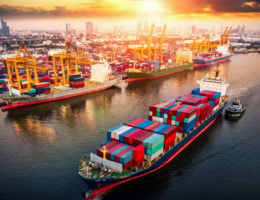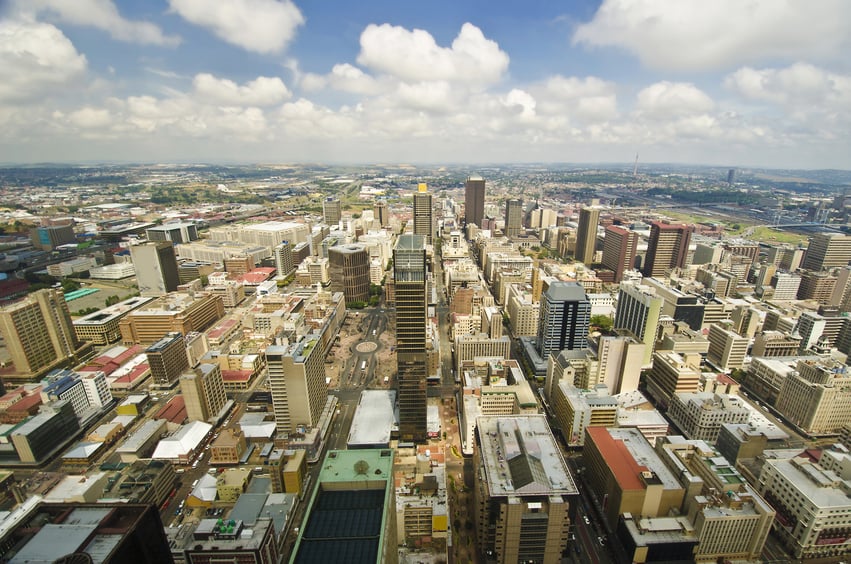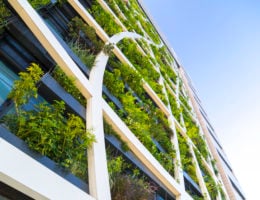As a top producer of numerous critical mineral commodities, Africa is set to benefit from the rapid increase in the rate of global energy transition, with the continent’s mining industry playing a role in sourcing and supplying these critical minerals for use in clean energy initiatives. Exporting these critical minerals as raw materials, however, reduces Africa’s trading position to one of price takers, and the current disruptions in global supply chains are hampering the trade of these commodities in Africa, with mining companies subject to long delays and higher costs. The African Continental Free-Trade Area, implemented in 2021, acts as a strong impetus for African governments to address their infrastructure gaps, streamline their supply chains, boost their manufacturing capacity and overhaul regulation relating to trade, cross-border initiatives, investment-friendly policies and capital flows.
The strengthening partnership between the United States and Africa is having a positive impact on the myriad of trade and investment opportunities created by the African Continental Free Trade Area. At the recent US-Africa Leaders’ Summit in Washington, DC in December 2022, a number of exciting initiatives and investments were announced by the US to boost two-way trade and investment between the two regions.
The implementation of Pillar 2, a principal rule of the Organization of Economic Cooperation and Development’s 15% global minimum tax proposal, has been debated for several years. Recently, Japan took a firm step towards affirming its adoption of Pillar 2 when the country outlined its 2023 Tax Reform Package, which included the implementation of the 15% global minimum tax. The Package also introduced an Income Inclusion Rule that in broad terms, aligns with the Global Anti-Base Erosion (GloBE) Model Rules, expected to become effective in 2024. This affirmative step by Japan puts some pressure on other states that have committed to implementing the GloBE rules, particularly in the European Union (EU), the United States (US) and South Africa.
This article explores the scope of the South African Revenue Service’s (SARS) direct and substantial interest in the case of “Commissioner: South Africa Revenue Service: In re: Cyril and Another v Additional Magistrate, Magistrates Court for Region of Alexander.” This case confirms that SARS has a direct and substantial interest in the evidence admitted in a review application stemming from criminal proceedings under the Customs and Excise Act. It further confirms that there is no time limit for intervention applications.
The African Continental Free Trade Area Agreement (AfCFTA) recently launched the Guided Trade Initiative to test meaningful, continuous trade under AfCFTA and to assist in the development of shorter, regional value chains that will allow for more climate-resilient, sustainable trade across the continent. But for Africa to make the most of free trade, it is essential that large gaps in continent-wide infrastructure and manufacturing be developed in a sustainable way.
There are many examples of non-resident shareholders of South African companies failing to endorse their shares. This constitutes a breach of South Africa’s Exchange Control Regulations and may be subject to penalties and/or imprisonment. This endorsement should be carried out as soon as possible after the acquisition of shares, and if this was not done, it should be rectified straight away.
Carbon tax was introduced in 2019 to assist South Africa to deliver on commitments made in the Paris Agreement in 2015. This tax is expected to increase in the years ahead, and carbon-intensive businesses have spoken out about the negative impact of this tax on their bottom lines, especially as they continue to recover from the pandemic and invest in energy transition infrastructure. As the clean energy industry grows, so does the need for specific incentives or legislation to deal with certain spin-offs from the measures introduced to reduce exposure to carbon tax. As such, more policies that incentivize the reduction of carbon emissions and the transition to clean energy are likely to be announced in the coming years.
The Tax Administration Act in South Africa permits the warrantless search and seizure of a taxpayer’s property by the South African Revenue Service, which plays an essential role in ensuring that taxes are collected in an efficient and effective manner. However, this has been under scrutiny for many years due to its potential to infringe the right to privacy as enshrined in the South African Constitution. A recent case highlighted this matter and the circumstances under which such procedures may be carried out.
The Annual Compliance Conference begins next week and attracts over 6,000 in-house senior legal and compliance professionals from across the world. This leading compliance conference will be held across five weeks from 6 September – 6 October 2022. We will be virtually delivering our cutting-edge insights and guidance on key global compliance, investigations and ethics issues. Our global experts will provide practical insights and analysis on significant developments:
• anti-bribery
• corruption and economic crime
• customs and FTAs
• ESG, supply chain and product compliance
• antitrust and competition
• export controls, sanctions and foreign investment
Click here to view the full agenda and register your interest in joining us virtually at this must attend global compliance conference for senior in-house legal and compliance professionals.
This article, by Francis Mayebe, Candidate Attorney in the Tax Practice in Johannesburg and Virusha Subban, Head of the Johannesburg Tax Practice, looks at the criteria and guidelines for voluntary tax disclosure in South Africa. The article outlines a recent case, and analyses the meaning of “voluntary” within the context of the voluntary disclosure program in South Africa.








